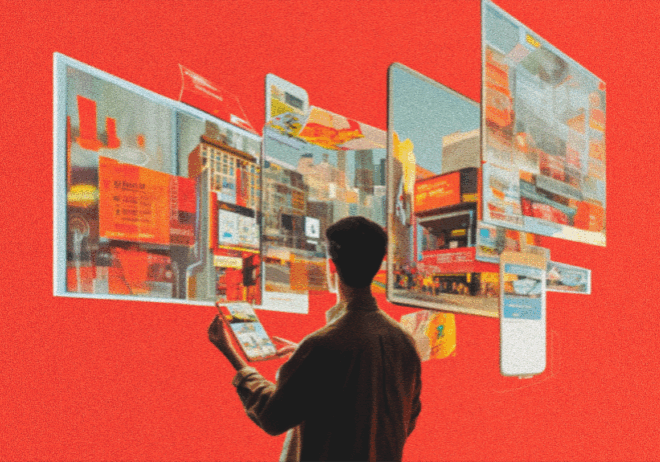
How Consumer Direct Marketing is Reshaping B2B Strategies
The lines between B2B and B2C marketing are blurring. These two fields were traditionally considered distinct, with different strategies, goals, and techniques. However, B2B marketers increasingly take cues from consumer direct marketing to better engage their audiences and drive results.
As B2B buyers now expect the same level of personalization, engagement, and seamless experiences as consumers, marketers must rethink their approach.
Here’s how B2B marketers are leveraging Direct-to-customer (DTC) strategies to enhance their effectiveness.
Personalization is paramount
Consumer direct marketing thrives on personalization. Modern customers expect brands to understand their needs and preferences, delivering tailored messages that resonate on a personal level.
B2B marketers have realized that businesses, too, are made up of individuals who appreciate customized communication. Data-driven personalization can significantly improve engagement, build trust, and boost conversions.
For example, Adobe has provided customized resources and webinars for retail marketing teams, focusing on enhancing customer engagement through digital media. This approach increased engagement and customer satisfaction and boosted Adobe’s sales and client retention rates.
By analyzing data and customer insights, B2B companies can craft highly personalized campaigns that address each client’s unique needs. AI-powered tools and CRM platforms help businesses automate and scale this personalization, ensuring marketing efforts feel relevant and impactful.
Moreover, account-based marketing (ABM) is gaining popularity among B2B companies. ABM allows businesses to focus on high-value accounts with tailored content and targeted outreach. This method aligns sales and marketing efforts to drive higher conversions and long-term client relationships.
Storytelling wins hearts and minds
In B2C marketing, storytelling is a powerful tool for creating emotional connections with consumers. Brands that tell compelling stories about their products, values, and mission capture their audience’s attention and build lasting relationships.
B2B marketers are now adopting this approach to humanize their brands and make messaging more relatable. Google AdWords’ Success Story series is an excellent example. These short videos feature real-life business owners who use Google Ads to grow their companies. By showcasing these success stories, Google is promoting its product and engaging its audience through authentic narratives.
Storytelling in B2B marketing doesn’t have to be overly complex. Case studies, testimonials, and behind-the-scenes insights help build trust and credibility while making a company’s products and services more appealing.
Additionally, thought leadership content, including whitepapers, research reports, and expert interviews, is effective for B2B companies to demonstrate their authority in an industry. By combining storytelling with data-backed insights, brands can create compelling content that resonates with decision-makers.
Social media is a game-changer
B2C brands have long leveraged social media to connect with their audience. Now, B2B companies are recognizing the power of platforms like LinkedIn, X (formerly Twitter), and Instagram in reaching decision-makers and industry influencers.
Social media enables B2B marketers to showcase expertise, share valuable content, and participate in industry conversations. Companies like Salesforce and HubSpot use LinkedIn to provide insights, host discussions, and build thought leadership.
Beyond brand awareness, social media allows for direct interaction with clients. Whether responding to real-time inquiries or providing valuable insights through posts, B2B brands can cultivate relationships and drive engagement through consistent and authentic communication.
Video content, particularly on platforms like LinkedIn and YouTube, has also proven to be an effective engagement tool. Webinars, product demos, and behind-the-scenes content help establish credibility while providing valuable industry knowledge.
The rise of influencer marketing
Influencer marketing has long been associated with consumer brands, but it is now gaining traction in B2B. Industry experts, thought leaders and niche influencers have significant sway over their professional networks.
B2B companies are partnering with these individuals to amplify their brand messages, build credibility, and expand their reach. For example, IBM collaborates with tech influencers to showcase its AI and cloud solutions, while Microsoft frequently partners with industry leaders to promote its enterprise software solutions.
By collaborating with credible voices in their industries, B2B brands can strengthen their reputation and gain access to new audiences, ultimately enhancing brand perception and driving sales.
In addition to working with external influencers, B2B companies are increasingly investing in employee advocacy programs. Encouraging employees to share industry insights, company news, and thought leadership content on social media helps brands establish trust and authority in their sectors.
Seamless customer experience matters
Consumers expect a seamless and enjoyable customer experience from any brand they engage with, and B2B buyers are no different.
From user-friendly websites to efficient customer service, every touchpoint should be designed to inform and delight the customer. A frictionless experience can significantly improve conversion rates and foster long-term loyalty.
B2B marketers can improve the customer journey by optimizing digital interfaces, streamlining the purchasing process, and providing top-tier support. Companies like Shopify Plus have refined their onboarding and support processes, ensuring that business clients receive an intuitive and smooth experience from start to finish.
Customer experience extends to self-service options, such as knowledge bases, AI-powered chatbots, and interactive content. Providing clients with easy access to relevant information enables them to make informed decisions quickly, improving satisfaction and retention.
Embracing agile marketing
Today’s fast-paced digital landscape demands agility. B2C marketers have long adopted agile marketing techniques, such as iterative planning, rapid testing, and quick adjustments based on real-time feedback.
B2B companies are now following suit. By leveraging data and analytics, B2B marketers can continuously refine their strategies, experiment with new ideas, and capitalize on emerging opportunities.
For instance, brands like Oracle and HubSpot use agile marketing methodologies to quickly adapt to industry trends and ensure their campaigns remain relevant and impactful.
Moreover, marketing automation tools, such as AI-driven analytics and programmatic advertising, enable B2B brands to optimize campaigns in real time, improving efficiency and ROI.
Cut to the chase
The marketing landscape is evolving. B2B marketers who learn from consumer direct marketing can enhance personalization, leverage storytelling, engage influencers, and create seamless experiences.
The lines between B2B and B2C will continue to blur, making it essential for B2B brands to adopt consumer-centric strategies. By integrating personalized outreach, agile methodologies, and a seamless customer experience, B2B marketers can stay ahead of the curve and drive long-term success.

